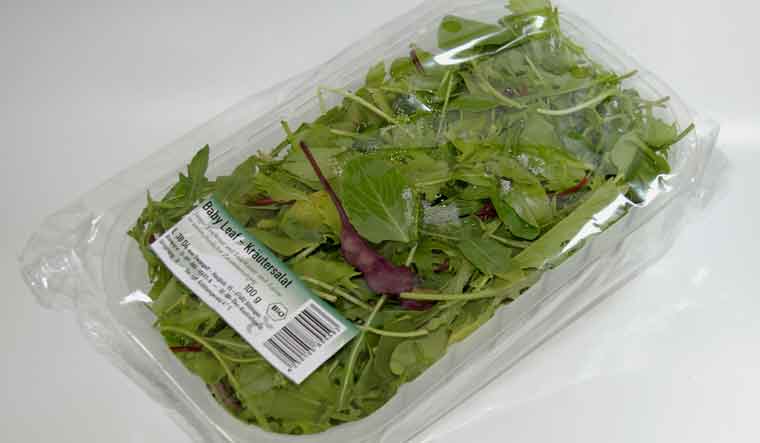Prime minister Narendra Modi has called for a nationwide ban on single-use plastic in three years time. As a precursor, reports indicate that as many as six items of everyday usage like plastic bags, cups and straws, may effectively be banned from manufacture and use from October 2, Gandhi Jayanti, onwards.
While the debate boils over with politicians, industry and activists discussing the pros and cons, could bioplastics be the panacea everyone is looking for?
On Thursday, Total Corbion PLA, a joint venture led by global oil major Total, held discussions with officials of India's trade bodies like CII and FICCI, as well as with reps of GMR, which runs airports in Delhi and Hyderabad. The idea? To replace the use of conventional plastics—in airports, food courts, restaurants, etc across India—with bioplastics.
Bioplastics, not to be confused with bio-degradable plastics, are plastic materials made wholly or in part from biomass, like sugarcane, cornstarch, vegetable oil etc, vis-a-vis 'regular' plastic, made from petrochemicals. Compared to conventional plastic, which degrades slowly that it has now become a monstrous environmental and health risk, the advantage of bioplastic is that once its use is over, referred to as 'end of life' stage, it can be industrially composted or de-polymerised (meaning the petrochem element could be removed to convert it back to the original bio organism used to make it, like lactic acid) or even be converted into bio-fuel.
“Everyone now says plastics are bad. That is not true; plastics are very good. But (what makes them bad is) the 'end of life' cycle,” points out Stephane Dion, CEO of Total Corbion PLA. “ And we need to fix that.”
also read
- How Peter and Neeno turned their house in Delhi's Sainik Farms into an oasis
- What will it take to clean up Delhi air?
- 'Rain is an effective scavenger of pollutants': IIT professor Sachchida Nand Tripathi
- Delhi air pollution: GRAP IV to continue till Monday; SC raps Delhi police, authorities for ‘complete failure’ in implementing restrictions
Total Corbion PLA's plastic-alternative suggestion for India is PLA or poly-lactic acid, which can be made from sugarcane starch and used for bags and packaging. The company presently has a factory in Rayong, Thailand to make PLA and it says opening a plant in India, where sugar is cheaply available, can be looked at once the economics of scale is achieved.
There is a reason. While bioplastics like PLA (there are other bioplastic varieties like PBS also in the market) may be a better alternative to use-and-throw plastic, they can be as much as three times more expensive. “But you have to take the cost we incur over the problem of plastic waste also into account,” points out Dion.
Bioplastics have their own advantages, as well as disadvantages. While conventional plastic does not decompose and pollutes our environment and even our own bodies for hundreds of years, many type of bioplastics require industrial-level composting. This is one of the reasons why Total Corbion PLA is proposing to start with airports, catering firms and food courts initially, rather than going to governments and civic bodies, as the former is a controlled ecosystem where the used plastic can be effectively collected back for composting, which require industrial-level expertise.
Total Corbion PLA officials are optimistic at their discussions with Indian corporates, and are hopeful India will show the way in dealing with the plastic menace for the developing world. Presently, bioplastics form a miniscule percentage of the total global use of plastic, and is used mostly in the west. But adoption rates are increasing. In Italy, it has been a law for the last few years that shopping bags have to be bio-degradable plastic. Companies like Danone, and brands like Snickers, presently use bioplastic for packaging in the European market.



